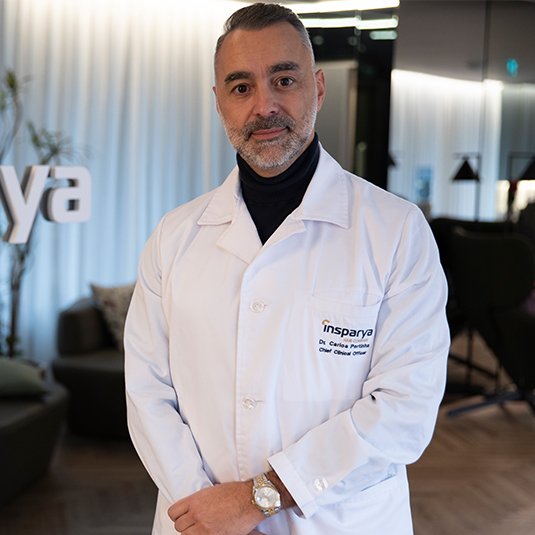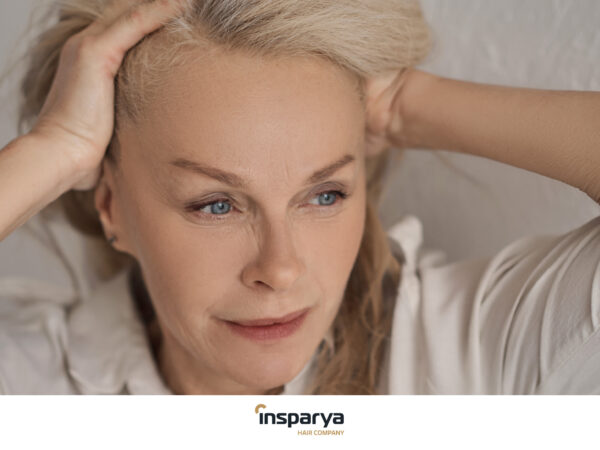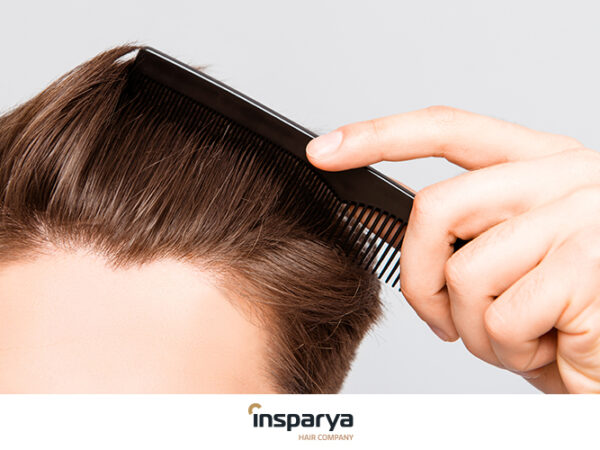
Mitos y verdades sobre el impacto de la creatina en la salud capilar
- ¿La creatina causa caída del cabello? ¿Qué dicen los estudios sobre la relación entre la creatina y la calvicie?
- Mitos y verdades sobre la creatina y la salud capilar:
- ¿La creatina aumenta los niveles de DHT?
- ¿La creatina causa caída del cabello en mujeres?
- Suplementos que causan caída del cabello: ¿la creatina está en la lista? ¿Qué suplementos pueden acelerar la calvicie?
- ¿Cómo prevenir la caída del cabello al usar creatina? Consejos para minimizar su impacto en el cabello:
- ¿Cuándo acudir a una clínica para evaluar tu salud capilar?
La creatina es uno de los suplementos más estudiados y con eficacia comprobada en varias áreas de la salud, el bienestar y el rendimiento físico. Su principal beneficio radica en su capacidad para regenerar rápidamente el ATP (trifosfato de adenosina), la principal fuente de energía celular, lo que permite un mejor desempeño muscular. Por esta razón, es un suplemento ampliamente utilizado a nivel mundial.
Además de sus beneficios en el rendimiento físico, hay evidencia de que la creatina juega un papel importante en la producción de energía en el cerebro, pudiendo contribuir a la mejora de funciones cognitivas como la memoria, el tiempo de reacción y la capacidad mental. Sin embargo, el aumento de la popularidad de este suplemento ha generado algunas dudas, especialmente sobre su posible relación con la caída del cabello y los efectos de su suplementación en la salud capilar. En este artículo, el Grupo Insparya aclara mitos y verdades sobre el impacto de la creatina en la salud capilar.
¿La creatina causa caída del cabello? ¿Qué dicen los estudios sobre la relación entre la creatina y la calvicie?
La posible relación entre la caída del cabello y la creatina surgió en 2009, tras la publicación de un estudio de van der Merwe J en el Clinical Journal of Sport Medicine. El estudio evaluó los posibles efectos secundarios del consumo de creatina en un grupo de jugadores de rugby.
Los resultados indicaron que el consumo recurrente de creatina provocó un aumento de más del 50 % en la concentración de dihidrotestosterona (DHT) en estos jugadores, una hormona vinculada a la calvicie androgenética. Sin embargo, no existen investigaciones concluyentes que demuestren que la creatina, por sí sola, cause caída del cabello.
Mitos y verdades sobre la creatina y la salud capilar:
❌ Mito: La creatina causa calvicie.
✅ Verdad: Puede aumentar ligeramente los niveles de DHT, pero no hay pruebas de que esto provoque directamente la caída capilar.
❌ Mito: Las mujeres deben evitar la creatina por riesgo de caída del cabello.
✅ Verdad: El impacto en los niveles hormonales femeninos es mínimo.
¿La creatina aumenta los niveles de DHT?
El DHT es un subproducto de la testosterona que puede acelerar la miniaturización de los folículos capilares en personas genéticamente predispuestas a la calvicie. Aunque algunos estudios han mostrado una correlación entre el consumo de creatina y el aumento de DHT, se necesitan más investigaciones para demostrar una conexión directa con la caída efectiva del cabello.
¿La creatina causa caída del cabello en mujeres?
La creatina puede influir ligeramente en los niveles hormonales. Algunas mujeres incluso reportan una mejora en la calidad del cabello, posiblemente debido a su efecto en la retención de agua, que puede contribuir a la hidratación del cabello y la piel.
Dado que las mujeres tienen niveles de testosterona más bajos que los hombres, la conversión a DHT es menor, lo que reduce la preocupación sobre la caída del cabello relacionada con la creatina. No obstante, si existe un historial de alopecia androgenética, es recomendable un seguimiento médico especializado, como el que ofrecen las clínicas del Grupo Insparya.
Suplementos que causan caída del cabello: ¿la creatina está en la lista? ¿Qué suplementos pueden acelerar la calvicie?
Algunos suplementos se han asociado con el agravamiento de la caída del cabello, como:
- Esteroides anabolizantes
- DHEA (deshidroepiandrosterona)
- Consumo excesivo de proteínas sin equilibrio nutricional
Si has notado un aumento en la caída del cabello tras iniciar el uso de creatina, revisa otros factores como el estrés, deficiencias nutricionales o antecedentes familiares de calvicie. Si la caída persiste, consulta con un especialista que pueda evaluar tu situación de manera personalizada y recomendarte el tratamiento más adecuado.
¿Cómo prevenir la caída del cabello al usar creatina? Consejos para minimizar su impacto en el cabello:
- Mantén una hidratación adecuada y una alimentación equilibrada, rica en vitaminas esenciales.
- Evita excesos en la suplementación.
- Consulta con especialistas médicos.
- Reduce el estrés.
- Prioriza un descanso de calidad.
¿Cuándo acudir a una clínica para evaluar tu salud capilar?
Si la caída del cabello es persistente, es fundamental consultar a un especialista para identificar las causas y recomendar el tratamiento más adecuado.
La relación entre la creatina y la caída capilar es una preocupación común, pero hasta la fecha no existen evidencias científicas concluyentes que demuestren que su consumo cause calvicie. Sin embargo, el Dr. Carlos Portinha, director clínico del Grupo Insparya, señala que:
«Es importante considerar que la pérdida de cabello puede tener múltiples causas, desde factores genéticos hasta desequilibrios hormonales o deficiencias nutricionales. Un diagnóstico médico especializado es clave para tratar el problema desde la raíz y prevenir su agravamiento.»
El Grupo Insparya cuenta con un equipo médico especializado, siempre disponible para ayudar a quienes valoran su salud capilar y buscan las soluciones más avanzadas, donde la atención personalizada y la excelencia clínica marcan la diferencia.







